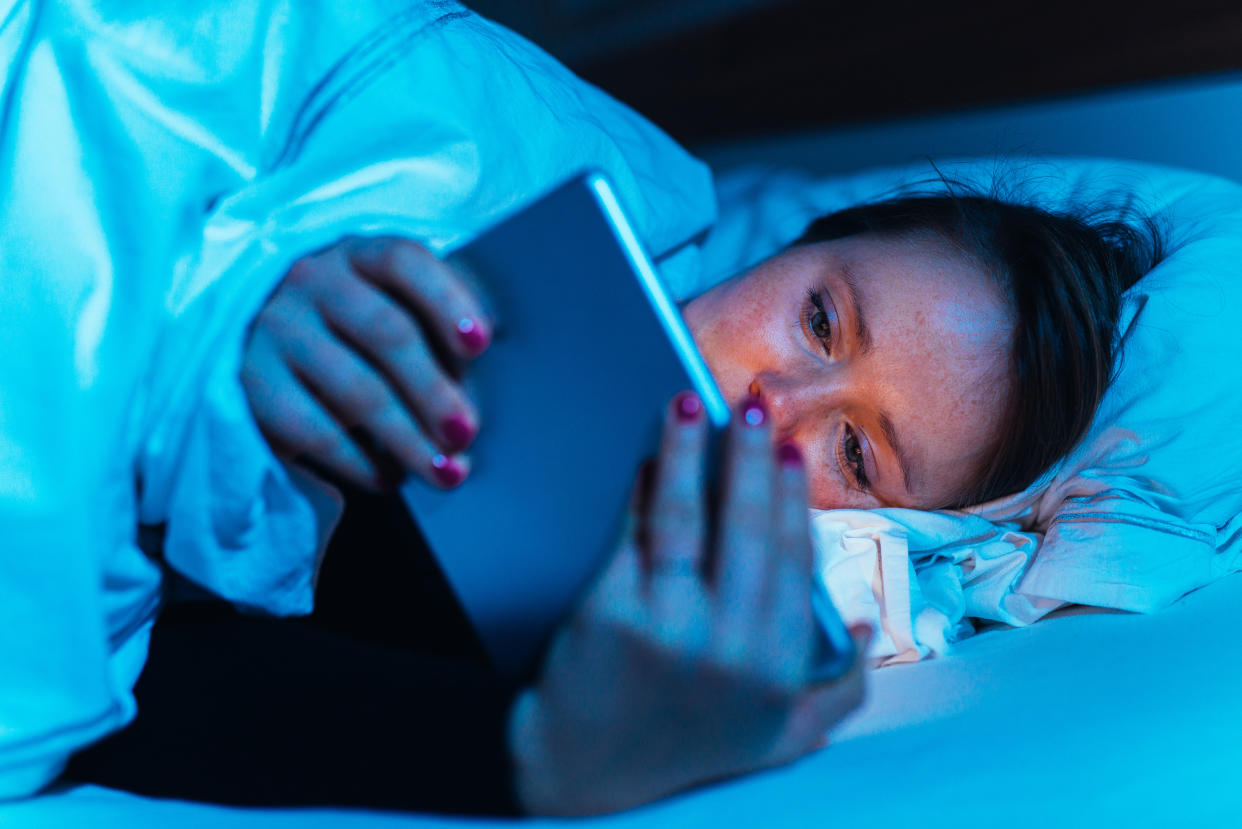'Binge watching addiction' treated by Harley Street therapists

People are being treated for “binge watching addiction”, it has emerged.
In the first therapy of its kind, staff on London’s prestigious Harley Street are reportedly helping those whose “reliance” on TV shows is taking over their lives.
Obsessively watching crime shows nearly cost a 35-year-old man his job, with the patient glued to his screen for up to seven hours a day, The Telegraph reported.
READ MORE: Being a shopaholic 'should be considered a mental illness'
Adam Cox, a psychotherapist at Harley Street who treated three patients for “binge watching addiction” last year, said: “All three had fallen into a dangerous loop where they felt unable to switch off.
“They just had to watch the next episode, and the one after that and the one after that.”
A gripping storyline is thought to release the feel-good hormone dopamine, which regulates the brain’s reward and pleasure centre.
The same chemical is also released after drinking or taking illicit drugs.
While users may get a “buzz” initially, they eventually require more of a dopamine fix for the same effect, setting the groundwork for addiction.
With a bank of episodes at your disposal, viewers of streaming services no longer have to wait to find the answer to a cliff hanger, leading to “instant gratification”.
Netflix, Amazon Prime and some other streaming services also automatically take viewers to the next episode in a series, encouraging them to spend hours glued to screens.
Some also worry the accessibility of streaming services on iPads and phones means TV watching is no longer restricted to your lounge.
READ MORE: Men with drug or alcohol addiction are 'more likely to commit domestic violence'
The aforementioned 35-year-old patient reportedly started on ‘Breaking Bad’, before moving onto the true crime documentary ‘Making a Murderer’.
“He would watch until he was too exhausted to keep his eyes open, finally falling asleep around 4am,” Mr Cox said.
The patient, like others on Harley Street’s books, was treated via counselling and cognitive behavioural therapy (CBT).
CBT is a talking therapy that helps patients manage their problems by changing how they think and behave, according to the NHS.
Netflix has skyrocketed in popularity, from 44m global subscribers in 2013 up to an estimated 166m last year.
The average Brit reportedly spends two hours a day watching Netflix, soaring to four or more hours in those aged 18-to-34, Ofcom figures show.
Compulsive viewing seems to be encouraged by big wigs at Netflix, with its CEO Reed Hastings famously citing “sleep” as its biggest competitor in 2017.
READ MORE: Up to one in four children are 'addicted to smartphones'
TV bingeing is not the only unusual addiction to arise in recent times.
The NHS announced last year those addicted to gaming would be able to get support at the UK’s first specialist clinic.
This came after the World Health Organization classified it as a mental health disorder.
Binge watching addiction can only be treated privately.
There is also calls for “shopping addiction” to be recognised as a real condition, Yahoo UK previously reported.
Netflix declined to comment on The Telegraph’s article. Yahoo UK has approached the company.


